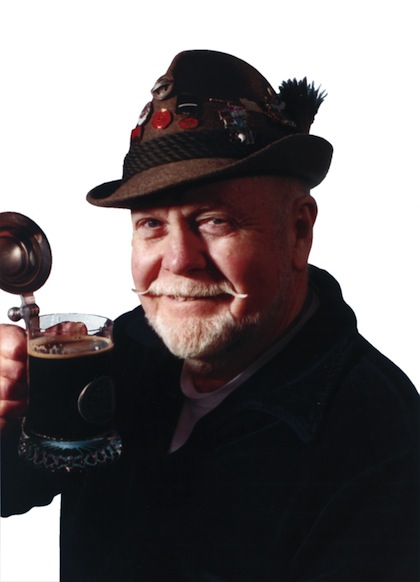For some time now, the Slow Food people in my part of the world have acted as though beer did not exist. That’s OK, because until very recently I thought of them as an anti-McDonald’s group and not much else. I could sympathize with them, but I wasn’t ready to squander $60 of my ill-gotten finances on such a narrow philosophy.
What makes Slow Food so interesting is that it ties together ecology and gastronomy in what is referred to as an “eco-gastronomical organization.”

It was Garrett Oliver who changed my views. He spoke at length on that subject when I interviewed him a while back at his Brooklyn Brewery in New York City, where he is a member of Slow Food’s New York board.
What makes Slow Food so interesting is that it ties together ecology and gastronomy in what is referred to as an “eco-gastronomical organization.” Its goal is to preserve worldwide food culture and the biological diversity necessary to produce the foods.
I found that Slow Food doesn’t just talk; it actually takes action through various projects. One is called the Ark. When products are put into the Ark, that means that Slow Food is taking the action to help preserve them.
Slow Food was founded in Italy, but Slow Food USA is an American booster organization that looks to do the same things here that the Italian, German, and French—and now Chinese—Slow Food organizations are doing in their countries. Lookin’ to make sure that everything isn’t sold to us by McDonald’s and Archer-Daniels-Midlands.
Carlo Petrini, who started Slow Food, has said that the American microbrew movement is the purest expression he’s ever seen of the concept of Slow Food in action—bringing back from the dead a whole beer industry and various beer styles. The United States has become the Ark for beer styles. Many of the Belgian breweries you love couldn’t exist without their US sales.
Despite those brave words from Slow Food in New York, in this part of the world, Slow Food was neglecting and even maligning beer—this in a state where craft beer is an important factor in our economy.
I tried to point out to the local Slow Food convivium that there’s a lot more trouble in the European brewing world than ever might be imagined. Breweries there are in REAL danger. This is the whole world’s brewing industry. And America is the Ark.
Here in Portland, several brewers have been open to the Slow Food movement, and Peter de Garmo, head of the Portland Slow Food Convivium, has been receptive but had not managed to get together with any of our brewers.










